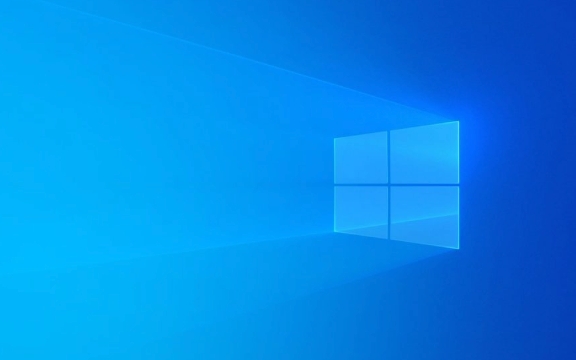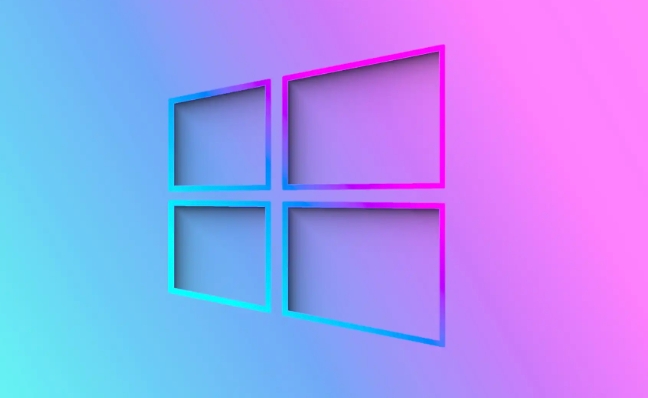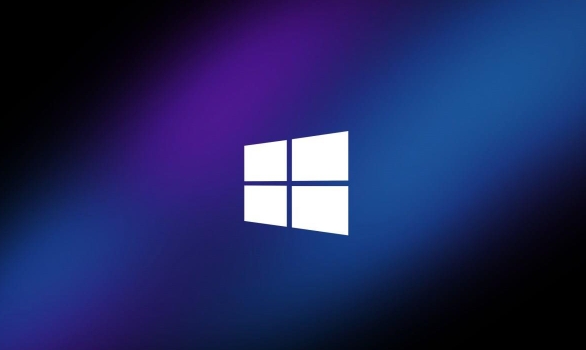First, adjust power settings by setting "Sleep after" to a specific time and disabling "Allow wake timers" in Advanced power settings. 2. Disable Fast Startup via Control Panel to prevent hybrid shutdown from interfering with sleep mode. 3. Use powercfg /requests in Command Prompt to identify apps or devices blocking sleep, then close unnecessary programs or disable wake permissions in Device Manager. 4. Update or reinstall graphics and chipset drivers from the manufacturer’s website to resolve hardware-related sleep issues. 5. Test sleep manually via the Start menu or lid closure, and check Event Viewer under Power-Troubleshooter if problems persist. The issue of a Windows 10 PC locking instead of sleeping is typically resolved by correcting power settings, disabling Fast Startup, stopping blocking applications or devices, and ensuring drivers are up to date, allowing the system to enter true sleep mode when expected.

If your Windows 10 PC isn’t going to sleep and instead just locks the screen, you're not alone — this is a common issue caused by power settings, system configurations, or background activity. The screen may turn off and show the lock screen, but the system stays powered on, fans keep spinning, and drives remain active. Here’s how to fix it so your PC actually sleeps when it should.

? 1. Check and Adjust Power & Sleep Settings
The most common cause is incorrect power settings.
Steps:

- Go to Settings > System > Power & sleep
- Under "Screen" and "Sleep", set both On battery power and Plugged in to your preferred time (e.g., 15 minutes)
- Click Additional power settings on the right
- Select your current power plan (e.g., Balanced) → Change plan settings → Change advanced power settings
- Expand Sleep and check:
- Sleep after: Set to desired minutes
- Hibernate after: Optional
- Allow wake timers: Set to Disable (especially on battery)
?? If "Sleep after" is set to "Never", your PC won't sleep — even if the screen turns off.
? 2. Disable Fast Startup (Can Prevent Proper Sleep)
Fast Startup can interfere with sleep mode because it puts the system in a hybrid shutdown state.

How to disable:
- Go to Control Panel > Hardware and Sound > Power Options
- Click Choose what the power buttons do
- Click Change settings that are currently unavailable
- Uncheck Turn on fast startup (recommended)
- Save changes
After disabling Fast Startup, test sleep mode again. Some users report this alone fixes the issue.
? 3. Stop Apps or Devices from Preventing Sleep
Some programs or hardware can block sleep mode.
Check what’s preventing sleep:
- Open Command Prompt as Administrator
- Run:
powercfg /requests
- If you see something like "DISPLAY...", "DRIVER...", or a process listed, that’s blocking sleep.
Common culprits:
- Media players (VLC, Spotify)
- Download managers
- Network drives or mapped drives
- USB devices (especially external hard drives or docks)
Fix:
- Close unnecessary apps before sleep
- Disable wake permissions for devices:
- Open Device Manager
- Expand Network adapters, right-click each → Properties → Power Management
- Uncheck Allow this device to wake the computer
- Repeat for USB controllers, Mouse/Keyboard if needed
? 4. Update or Reinstall Drivers
Outdated or faulty drivers (especially graphics and chipset) can prevent sleep.
What to do:
- Update graphics drivers (Intel, NVIDIA, AMD) from the manufacturer’s website
- Update chipset drivers via your PC/motherboard manufacturer
- Avoid generic drivers from Windows Update if better ones are available
Try putting the system to sleep manually after updates:
- Press Win X → Shut down or sign out → Sleep
? 5. Test Sleep Mode Manually
After making changes, test sleep:
- Click Start > Power button > Sleep
- Or close the lid (on laptops)
- Wait a few minutes — lights should dim, fan noise drop, and waking should require a key press or power button
If it still only locks, check Event Viewer:
- Search for Event Viewer
- Go to Windows Logs > System
- Filter by Source: Power-Troubleshooter
- Look for events showing why sleep failed
Summary
Your PC locking instead of sleeping usually comes down to:
- Incorrect sleep timer in power settings
- Fast Startup interfering
- Background apps or devices blocking sleep
- Outdated drivers or firmware
Fixing this isn’t hard — just methodical. Start with power settings and Fast Startup, then check what’s blocking sleep using powercfg /requests.
Basically, if the screen turns off but the PC stays awake, it’s not sleeping — and with a few tweaks, it can.
The above is the detailed content of Windows 10 won't sleep, it just locks the screen. For more information, please follow other related articles on the PHP Chinese website!

Hot AI Tools

Undress AI Tool
Undress images for free

Undresser.AI Undress
AI-powered app for creating realistic nude photos

AI Clothes Remover
Online AI tool for removing clothes from photos.

Clothoff.io
AI clothes remover

Video Face Swap
Swap faces in any video effortlessly with our completely free AI face swap tool!

Hot Article

Hot Tools

Notepad++7.3.1
Easy-to-use and free code editor

SublimeText3 Chinese version
Chinese version, very easy to use

Zend Studio 13.0.1
Powerful PHP integrated development environment

Dreamweaver CS6
Visual web development tools

SublimeText3 Mac version
God-level code editing software (SublimeText3)

Hot Topics
 Windows 11 slow boot time fix
Jul 04, 2025 am 02:04 AM
Windows 11 slow boot time fix
Jul 04, 2025 am 02:04 AM
The problem of slow booting can be solved by the following methods: 1. Check and disable unnecessary booting programs; 2. Turn off the quick boot function; 3. Update the driver and check disk health; 4. Adjust the number of processor cores (only for advanced users). For Windows 11 systems, first, the default self-start software such as QQ and WeChat are disabled through the task manager to improve the startup speed; if you use dual systems or old hardware, you can enter the power option to turn off the quick boot function; second, use the device manager to update the driver and run the chkdsk command to fix disk errors, and it is recommended to replace the mechanical hard disk with SSD; for multi-core CPU users, the kernel parameters can be adjusted through bcdedit and msconfig to optimize the startup efficiency. Most cases can be corrected by basic investigation
 How to Change Font Color on Desktop Icons (Windows 11)
Jul 07, 2025 pm 12:07 PM
How to Change Font Color on Desktop Icons (Windows 11)
Jul 07, 2025 pm 12:07 PM
If you're having trouble reading your desktop icons' text or simply want to personalize your desktop look, you may be looking for a way to change the font color on desktop icons in Windows 11. Unfortunately, Windows 11 doesn't offer an easy built-in
 Fixed Windows 11 Google Chrome not opening
Jul 08, 2025 pm 02:36 PM
Fixed Windows 11 Google Chrome not opening
Jul 08, 2025 pm 02:36 PM
Fixed Windows 11 Google Chrome not opening Google Chrome is the most popular browser right now, but even it sometimes requires help to open on Windows. Then follow the on-screen instructions to complete the process. After completing the above steps, launch Google Chrome again to see if it works properly now. 5. Delete Chrome User Profile If you are still having problems, it may be time to delete Chrome User Profile. This will delete all your personal information, so be sure to back up all relevant data. Typically, you delete the Chrome user profile through the browser itself. But given that you can't open it, here's another way: Turn on Windo
 How to fix second monitor not detected in Windows?
Jul 12, 2025 am 02:27 AM
How to fix second monitor not detected in Windows?
Jul 12, 2025 am 02:27 AM
When Windows cannot detect a second monitor, first check whether the physical connection is normal, including power supply, cable plug-in and interface compatibility, and try to replace the cable or adapter; secondly, update or reinstall the graphics card driver through the Device Manager, and roll back the driver version if necessary; then manually click "Detection" in the display settings to identify the monitor to confirm whether it is correctly identified by the system; finally check whether the monitor input source is switched to the corresponding interface, and confirm whether the graphics card output port connected to the cable is correct. Following the above steps to check in turn, most dual-screen recognition problems can usually be solved.
 Fixed the failure to upload files in Windows Google Chrome
Jul 08, 2025 pm 02:33 PM
Fixed the failure to upload files in Windows Google Chrome
Jul 08, 2025 pm 02:33 PM
Have problems uploading files in Google Chrome? This may be annoying, right? Whether you are attaching documents to emails, sharing images on social media, or submitting important files for work or school, a smooth file upload process is crucial. So, it can be frustrating if your file uploads continue to fail in Chrome on Windows PC. If you're not ready to give up your favorite browser, here are some tips for fixes that can't upload files on Windows Google Chrome 1. Start with Universal Repair Before we learn about any advanced troubleshooting tips, it's best to try some of the basic solutions mentioned below. Troubleshooting Internet connection issues: Internet connection
 Is the latest Windows update safe to install
Jul 02, 2025 am 01:04 AM
Is the latest Windows update safe to install
Jul 02, 2025 am 01:04 AM
Microsoft's latest Windows updates can generally be installed safely, but they need to be judged based on the update type and usage scenario. Ordinary users can update their daily office work, video watching, etc. directly; professional software or game users should be cautious. Regular quality updates (such as the monthly "Tuesday Patch") have low risks, so it is recommended to install them in time; updates to functions (such as large version upgrades) may cause compatibility issues. It is recommended to back up data, confirm software and hardware support, and check community feedback before installing. Overall, quality updates are safe and reliable, and functional updates are suitable for optional installation after observation.
 Want to Build an Everyday Work Desktop? Get a Mini PC Instead
Jul 08, 2025 am 06:03 AM
Want to Build an Everyday Work Desktop? Get a Mini PC Instead
Jul 08, 2025 am 06:03 AM
Mini PCs have undergone







